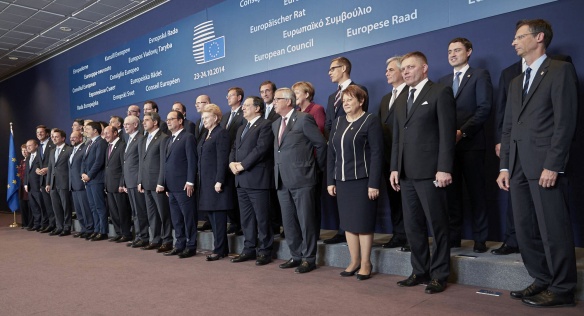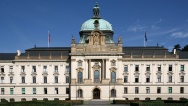Press Advisories
24. 10. 2014 22:13
The Czech Republic contributed to the breakthrough agreement on the EU climate-energy package
After a night of negotiations, EU leaders managed to set a binding target for reductions in greenhouse gas emissions of 40 percent compared to 1990, which was a key element of the agreement for the Czech Republic. “I am very happy that, after tough negotiations, we and our European partners have reached an agreement and have committed ourselves to meeting our international commitments. Given that the Czech Republic is a highly industrialised country, I regard the compromise we have reached, which provides a degree of certainty for industry and protection for future investments, as well as financing to upgrade our energy and industrial sectors, to be a success,“ said Prime Minister Bohuslav Sobotka.
Member States also agreed on two other goals to increase energy efficiency and the use of energy from renewable sources by 27%. The Czech Republic also managed to push through the inclusion of an explicit reference to the sovereignty of the Member States in choosing their energy mix in the text of the conclusions. Czech support also ensured that Member States also obtained a guarantee that these two European goals would not be binding at a national level.
Czech negotiators succeeded in obtaining adequate financial compensation, which will allow the Czech Republic to meet its ambitious commitments. A key tool to support the Czech economy is an increase in the number of allowances received by the CR, together with other states with lower GDP. The numbers will be increased by 10 percent. Depending on the cost of the allowances, the CR has estimated that it may receive between CZK 50 to 70 billion. The ratio of GDP per capita, promoted by the CR since the beginning of negotiations, has been retained as the basic criterion for calculating the level of compensation.
The European Council has agreed to create new funds, one to promote innovations and the other to support the modernisation of the economy. This has enabled the Czech Republic to gain tens of billions of crowns and other funding to support its economy.
The final package also includes an agreement to complete a single energy market, which has been one of the Czech Republic’s long-term priorities and which will contribute to the competitiveness and energy security of the twenty-eight Member States. It was in the area of energy security that the countries of the Visegrad group, including the Czech Republic, managed to push through an agreement to emphasise the completion of priority infrastructure projects. This will decrease the EU’s dependency on its dominant gas supplier.







